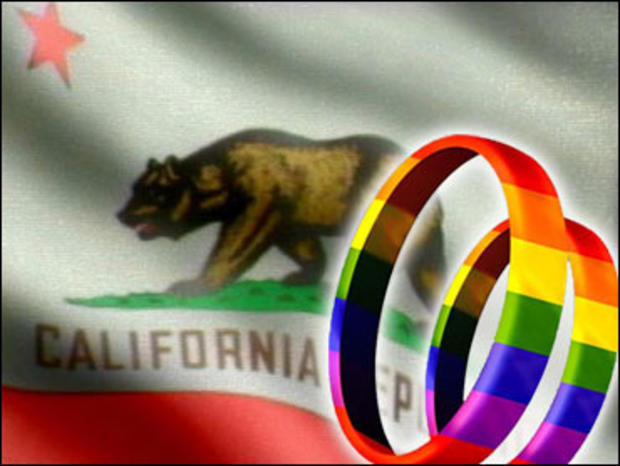Judges Hint They'll Support Ruling Against Prop. 8
The appeals court panel hearing arguments on the constitutionality of the California gay marriage ban indicated this afternoon they will rule it violates the rights of gays and lesbians -- with the only question being just how broadly the ruling will be.
(That of course assumes the appeals court will reach the question -- they first have to decide whether the Prop. 8 supporters have legal standing to defend the law.)
If they reach the merits, the judges today were clearly were skeptical of arguments by the lawyer for Prop. 8 supporters. But at the same time, they also seemed reluctant to issue a sweeping ruling for gay marriage.
Judge Stephen Reinhardt, one of the court's staunchest liberals, repeatedly pressed attorney Ted Olson on whether the court could rule for gay and lesbian couples in a relatively narrow way. He asked whether the court would have to rule that the Constitution guarantees gays and lesbians a fundamental right to marriage -- or whether the court simply could rule that it is unconstitutional to pass a law taking away a pre-existing right. (Remember, gays and lesbians had the right to marry in California for a short time.)
Olson, who equated the gay marriage ban to laws that once prohibited interracial marriage, initially seemed to argue for the sweeping ruling. But he later backed off and suggested he also would be satisfied with a ruling that struck down the gay marriage ban as unconstitutional because it simply took away a pre-existing right.
That distinction is important. It's one thing for the court narrowly resolve the case by striking down an initiative because it took away a pre-existing right to marry. It's another to broadly declare the U.S. Constitution requires the state to issue marriage licenses to gays and lesbians -- a ruling that would be highly vulnerable to reversal in the US Supreme Court.
The appeals court appeared inclined to resolve the case narrowly, along the lines of a 1996 Supreme Court case that struck down a Colorado constitutional amendment that had prohibited state and local governments from passing laws to protect gays and lesbians from discrimination.
In that case, the Supreme Court, in a ruling by Justice Anthony Kennedy, said the state's anti-gay rights amendment violated the Equal Protection Clause.
Calif. Court Hears Arguments on Proposition 8Prop. 8 Judges Chide Schwarzenegger, Brown for Not Defending Law

